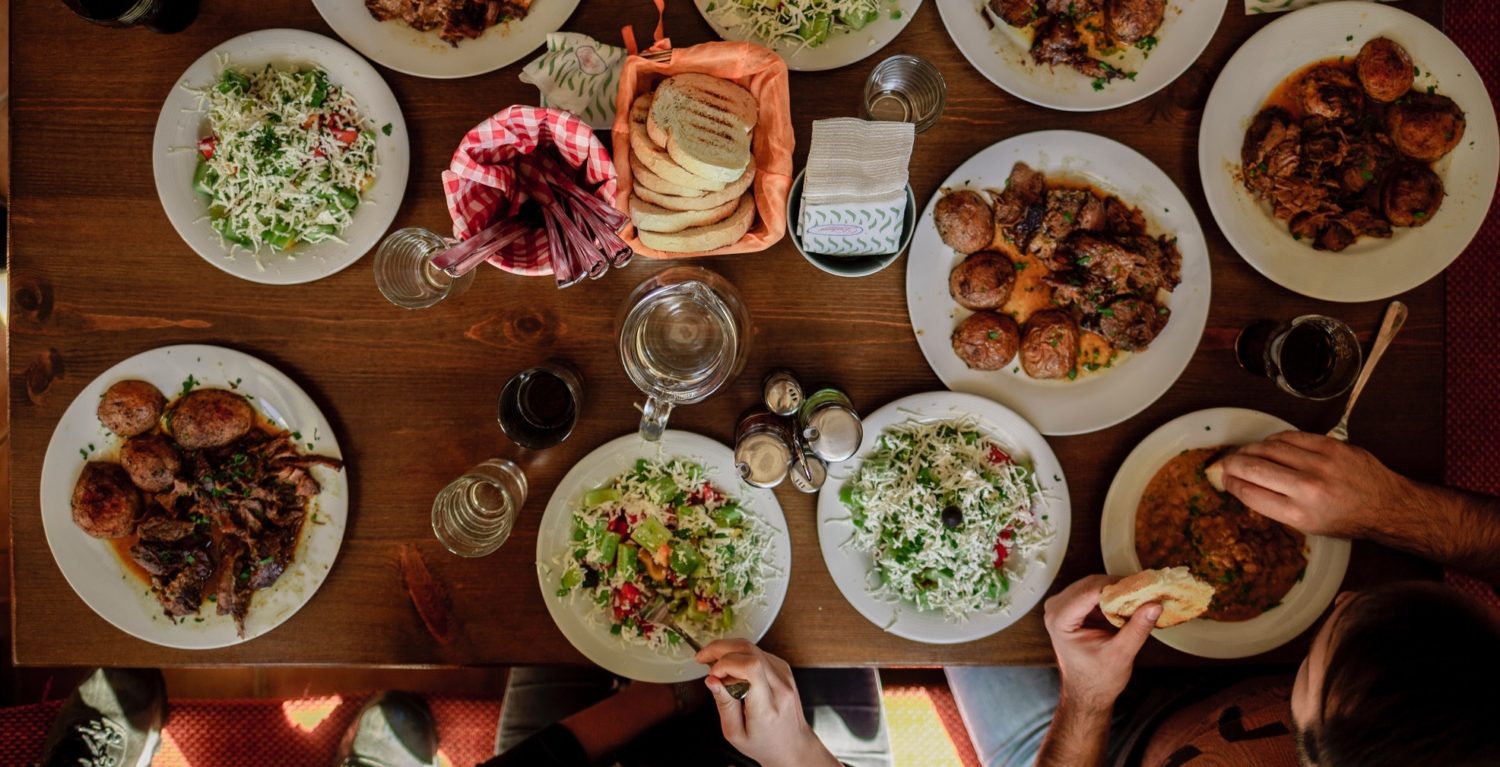Food for thought
Public dining spaces can strengthen our communities, write Louise Delmege and Elliot Woodhouse.
The way we grow, distribute and eat food needs to be radically transformed. The million different brands in your local supermarket might give you a dazzling choice, but is deciding which of the 10 brands of granola you’d like to eat, alone and in a rush, really the choice you want? For most of us there are fewer real options, with many of the brands on the shelves out of our price range.
The prolonged period of austerity plunged thousands of people into poverty. With poverty comes food insecurity, increased foodbank use and massively reduced choice. The market-driven distribution of food is failing to provide tasty, nutritious meals for all. Food ought to be decommodified.
The National Food Service campaign proposes community dining as a solution that Labour needs to get behind. Cooking and eating together is more cost-effective, sustainable, and enjoyable than eating alone. Studies have shown that regularly eating alone is one of the biggest factors in mental ill-health. But eating together is a vital part of human existence that seems to have been forgotten in modern Britain.
We live in a time where public dining is conspicuously absent from our towns and cities. It was not always this way. Spaces for sharing food have a long history. From the earliest moments of civilisation, communities organised their settlements around the campfire, where they not only cooked food but socialised and played. In ancient Greece, there were grand public buildings devoted to sharing meals, where political issues were discussed and young people were inducted into full membership of their towns and cities. The suffragettes ran neighbourhood food purchasing co-ops, and cooked food together to share the burden of women’s domestic work. In both world wars, when people were hungry, or had lost their kitchens in air raids, the government organised the ‘national kitchens’ – public dining halls which served food for today’s equivalent of £1 a head. In 1943, there were 2,160 of these, and they served 600,000 meals every day.
People come together around the dinner table. In Rojava, the threatened Kurdish region in Syria, restorative justice is currently being practiced. Rather than a punishment and prison-based system, justice in Rojava can mean two families eat together to make peace. In a country divided on Brexit, we need opportunities to step outside our immediate circles. But our public spaces, centred around spending, do not foster interactions with new people. Sitting and eating with others could break down these barriers. In public dining rooms there are hundreds of anecdotes of people building relationships with each other across the usual boundaries.
This is why activists from the Foodhall project in Sheffield have been working to develop the National Food Service campaign. Foodhall is a prototype National Food Service venue, where people from all walks of life can cook and eat food together on a ‘contribute what you can’ basis. Unlike a foodbank, Foodhall sees the community meal not just as emergency food provision, but as the stepping stone to a plethora of social goods. Community architecture designed around food sharing can become the backbone of flourishing, caring neighbourhoods and cities.
The word ‘resilient’ has become diluted by people using it to make light of government cuts. ‘Resilience’ cannot undo the violence of austerity – state support is needed to achieve food equality. However, in the event of climate collapse, which may well be within our lifetime, we’ll need communities that know how to look after each other. Community run dining spaces are practice for this.
There are many organisations up and down the country practicing communal dining. These include networks like FoodCycle and The Real Junk food project, Eid meals held in mosques, coffee mornings held in churches and school holiday lunch clubs. Many of these organisations redistribute food to reduce waste. The reduction of food waste, whilst vital in a society where an increasing number of people are becoming reliant on foodbanks, is not our primary goal. Once no more food is wasted and when no one lives in poverty, communal meals will still be valuable. Cooking and eating together is not just a solution to the problems we’re facing now, it’s how our eating culture ought to be organised forever. We need to invest in these ideas, and transform them from local activism to a new cohesive public service. It’s our hope that councils will benefit from increased budgets, allowing them to invest in community projects, giving them permanent spaces with affordable rents and protecting community space by supporting community land trusts and cooperatives.
We were thrilled when the previous shadow environment secretary Sue Hayman announced a role for ‘community kitchens’ in Labour’s policies on food. With the party’s renewed commitment to nationalised industry, we hope food remains high on the agenda.
Photo by Stefan Vladimirov on Unsplash.


